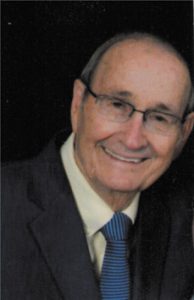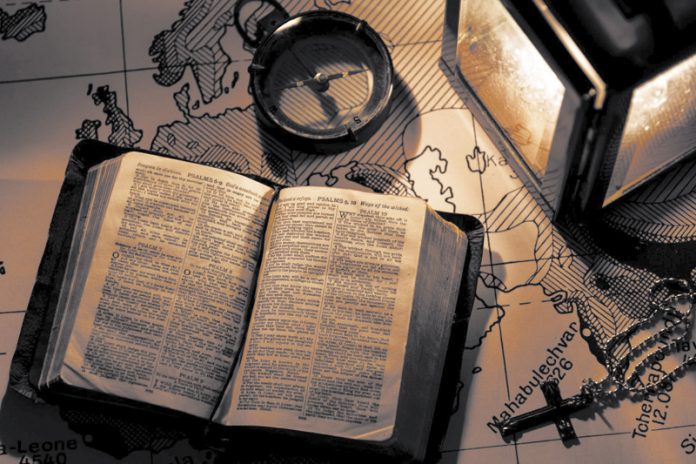
“Here is the test to find whether or not your mission on earth is finished: if you are alive, it is not.”
It was surreal. I was on the floor again. Hard, hardwood floor. I knew immediately that I had broken something in my right leg. I couldn’t move it. What to do? My night stand was seven or eight feet away, where the “emergency” button was. My walking cane was within reach, so I inched my way to the button, finally bringing it close and pushing it. No sign that it was alive—malfunction! Then, I thought of the phone, and with my cane, I pulled it onto the floor. All this took about four hours to finally be able to call 911.
My first reaction was to give up. I was exhausted. I had a fractured femur and hip, and having had a hip replacement a year before, I knew all the negative things ahead of me—needles, surgery, rehab, etc. Two things changed my mind. I glanced up at the picture of my three daughters and two sons. I didn’t want to make orphans of them. I thought about my grandkids and friends. I prayed a prayer that seemed to give me peace: “Lord, I didn’t ask to be born, and I’m not asking to die; but I want to thank you for the gift of life.” I didn’t panic. I thought about a poem I have somewhere in my files—“Death, Don’t Wait Up For Me”—in which the author spoke of the meaning and beauty of life and the basis urge toward self-preservation. So, I determined then and there that I would fight to hold on to life as long as I can.
I’m not afraid of death. It is the inevitable step all of us must take, sooner or later. This physical body must be laid aside so the spiritual body can be born. In this society, we have a difficult time trying to process the spirit, or the soul. It began mostly with Darwin, who put our roots more in the physical body than in the spiritual. Early American history reveals people on a spiritual journey, seeking religious freedom. And then, we began to lean toward physical fulfillment. We became more concerned about the needs of the body than the needs of the soul. We have gradually moved away from the language of philosophy, poetry and the meaning of life and let our society move toward the language of mechanism, technology and chemistry. With the coming of robots, we are becoming a “soulless” society.
Maybe all of this will change. Human being still hunger for “things this world could never satisfy.” We still value closeness, personal relationships, warmth and support from others.
Editor’s note: Well wishes for Dr. Blount during his recovery can be sent c/o Cenla Focus, P.O. Box 12774 Alexandria, LA 71315.










